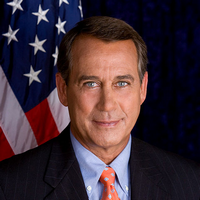With most U.S. political analysts -- Charlie Cook, Larry Sabato and Stuart Rothenberg among them -- now predicting that the Republicans will take back control of the House of Representatives in the midterm elections, the likelihood that Democratic Rep. Nancy Pelosi will be replaced as speaker of the house by the current Republican minority leader, Rep. John Boehner, is becoming more likely. But while this would mark a tectonic shift in American domestic politics, it might not lead to any immediate revolution in how the administration conducts foreign affairs. After all, the Democrats, under then-Minority Leader Pelosi, swept into power in the 2006 midterm elections promising to end the war in Iraq. Nevertheless, they subsequently acquiesced to the Bush administration's troop request for the Baghdad "surge."
So on the big issues of the day, notably the military conduct of the war in Afghanistan, the initiative will still rest with the Obama administration. A Republican-controlled Congress is not going to resort to the "nuclear" option of legislatively cutting funding for the Afghan campaign to protest the strategic decisions taken by the president's national security team -- just as the Democrats shied away from a similar move in 2007. Instead, a Congress in "hostile" political hands opens up the Obama team to the likelihood of more probing hearings and harsher scrutiny of his strategy, in an attempt to build up the case in 2012 for why there should be a change of occupants at 1600 Pennsylvania Avenue. But even though Republicans will be extremely critical of how the Obama administration handles the war, they will likely be loath to place any impediments that could subsequently constrain a future Republican chief executive from being able to exercise war powers.
It is in the areas that don't garner the daily headlines, however, that a Republican-dominated Congress will probably have more impact. A recent New York Times profile of Barry Jackson, Boehner's chief of staff, is revealing:

